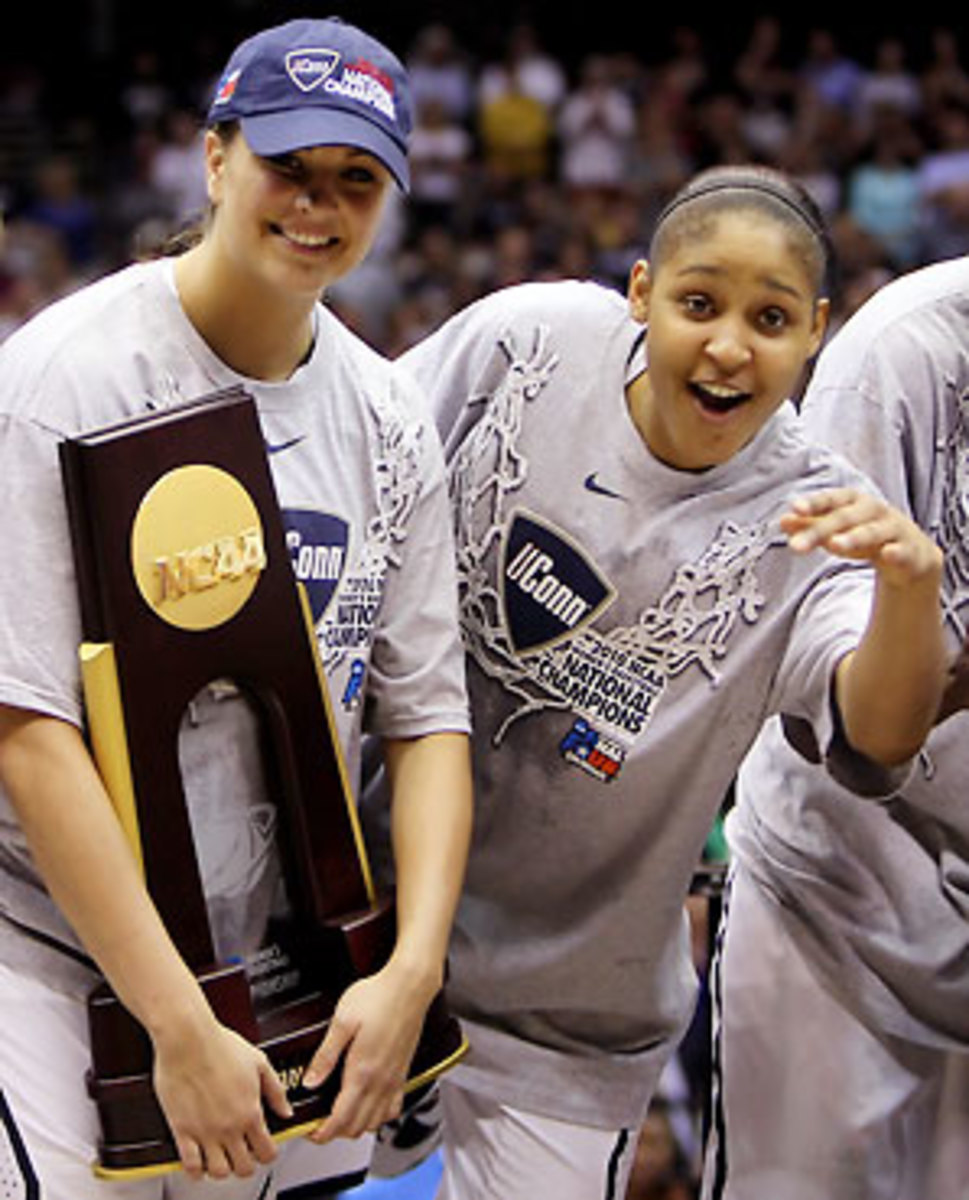UConn women raise age-old question: How good is too good?
As the University of Connecticut's women's basketball team was laying waste to the opposition these past few months, going through its second straight undefeated championship season, the argument arose that the Huskies were too good, and thus too bad for the sport. It's a perennial debate: is a sport better off with a lot of good teams battling one another ferociously or is it best to have one famous juggernaut that attracts attention for its superior majesty?
There is no doubt that in individual sports, which can't depend on home-team loyalty, the whole enterprise profits by having a dominant winner. Even before Tiger Woods became notorious for being the Don Juan of the demimonde, he was so compelling a golfer that in the tournaments he skipped, there was no sound as the putts fell in the forest. But Woods made fans beyond the cognoscenti look to golf. Same with, say, Michael Phelps and swimming.
With team sports, though, it's more complicated. Major league Baseball and the NBA, for example, are completely different in their appeals outside the core fandom. In pro basketball, the Celtics and Lakers may enjoy some historical resonance, but it is stars, not teams, that drive the league's popularity. The dream finale is LeBron James vs. Kobe Bryant, and never mind what shirts they might be wearing. Few cared about the San Antonio Spurs when they were champions. They were merely the best team. Ho hum.
Baseball, though, is so much a local attraction. Typical baseball fans are primarily connected to their home team, watching on local TV, listening on local radio -- so it's more difficult for national superstars to be created. Thus, for the postseason, a national audience is unacquainted with many teams, so that baseball profits most when well-known perennials, like the Yankees -- and the Phillies, now, in the National League -- dominate. In baseball, familiarity breeds audience.
By contrast, the NFL is such a national game and so many people bet the games without an emotional rooting interest, that it matters least whether there's a dominant team. Anybody will do.
For men's college basketball, Butler proved that what helps the sport most is for fans to have an outsider to cheer for. After all, the top players in college leave for the NBA after a year or two, so there's no continuity, no possible excellence. So, if the Goliaths don't have any appeal, hope for a little David to cheer on. Last year, when two blue-chip schools, North Carolina and Michigan State, met in the NCAA final, the ratings were abysmal.
But women's basketball is different because it's not top drawer. It needs a cynosure. Basically, UConn proves the point that the less mainstream the sport, the more widespread popularity one lasting, dominant team can bring. A team like UConn may be bad for the other women's basketball teams, but it's great for women's basketball.






